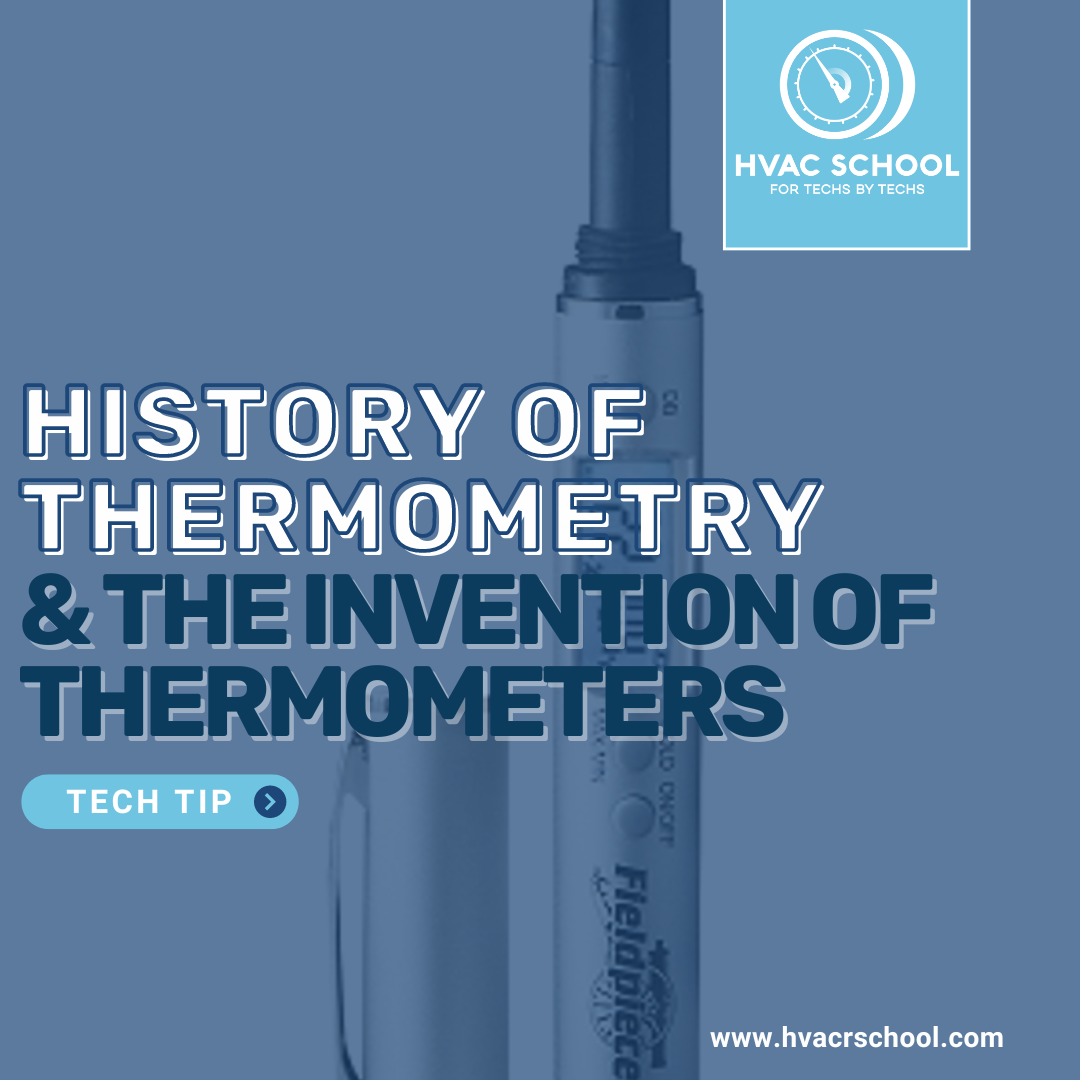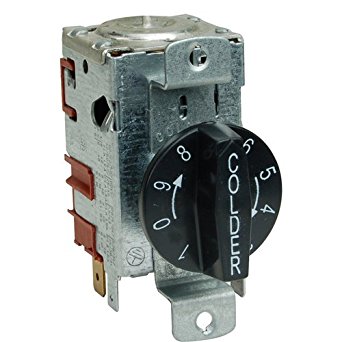Get Tech Tips
Subscribe to free tech tips.
Are YOU an Autodidact?

You probably didn’t expect to find the word “autodidact” on an HVAC education site. You’d probably expect to see it in an SAT prep book or a list of words to say five times fast. What does that word have to do with HVAC?
Well, autodidacts are some of the best techs in our trade. They consistently do good work, don’t let newfangled technology get the better of them, instill confidence in customers, and never stop learning. You might be one of them already.
Today, we’re going to talk a bit about what autodidacts are, some famous examples of autodidacts, and how you can build the skills of the autodidacts in our trade.
So, what is an autodidact?
An autodidact is a self-taught person.
Autodidacts don’t learn their skills through exclusively formal education. They teach themselves, relying on any materials they can get their hands on. Unsurprisingly, many autodidacts are avid readers or tinkerers.
In our trade, the autodidact is the technician who reads manuals and schematics to gain a fundamental understanding of the systems they work on. Another autodidactic technician may have never learned how to cut and fabricate sheet metal in trade school, so she buys sheet metal, tools, and books and learns how to do it herself.
The autodidacts in our trade are the best troubleshooters. That’s because they constantly expand their arsenal of HVAC knowledge and enjoy doing it. They will be top performers wherever they choose to work; their lifelong desire to learn and improve themselves will keep them at the top of their game.
Let’s see how autodidacts have shaped science and technology throughout history and in the current times. See if you can recognize common themes across these people or resonate with their stories.
Autodidacts in historical science and invention

Unsurprisingly, many prominent historical figures fall under the “autodidact” category. You probably recognize the two gentlemen above.
Hint: One painted the most famous painting of all time and was a biomechanic before it was cool (or even a real thing). The other was a prolific inventor and one of America’s Founding Fathers; you can find him on the $100 bill.
That’s right. That fellow on the left is Leonardo da Vinci, and that stately man on the right is Benjamin Franklin. Surely, intellectuals of their caliber owe their brilliance to extensive schooling.
Nope! In fact, NEITHER of them had a complete formal education!
Leonardo da Vinci
Da Vinci’s family noticed his artistic talent early on in life, and they neglected his formal education in favor of an artistic apprenticeship. Although da Vinci was best known for his art (which he studied formally), he also made incredible discoveries in human anatomy and physiology despite lacking formal education in Latin and mathematics. He taught himself Latin and used his other skills to learn how the human body’s functions relate to its form.
Da Vinci took an observational approach to science. He watched the human body in motion and examined cadavers to make his discoveries in biomechanics well before biomechanics entered scientific academia.
He did NOT learn about theories about the human body in educational institutions, and his examinations called some established medical principles into question. (For example, scientists and scholars believed that the liver was the central organ that controlled blood in the body during da Vinci’s time. Through his observations and constructions of organ models, da Vinci discovered that it was actually the heart.)
Benjamin Franklin
Now, most Americans are probably more familiar with Ben Franklin. He was the inventor of the lightning rod and bifocal glasses, noted the role of moisture in cooling, and was one of the Founding Fathers. Needless to say, he was a brilliant man—who failed to graduate from school.
Instead, Franklin continued his education through independent reading. As an adult, he joined a group of like-minded artisans and tradesmen(!) who focused on self-improvement. Books were expensive at the time, so he suggested that the group pool their resources to purchase books and run a subscription library, an uncommon idea in the colonies. That way, all autodidacts in the group had access to a pool of educational resources.
Those two historical figures either failed school or did not have access to formal education at all. However, they’re renowned for having some of the most brilliant minds in history. Formal education made no difference; everything they learned and everything that contributed to their success was fueled by their sole determination and love of learning.
Modern autodidacts

So, we just went over two incredible historical figures. However, their stories don’t exactly fit the context of the modern world that we all live and work in every day. What about modern autodidacts?
Many of them are highly successful people who are masters of their craft. The faces of the people above may not be quite as distinguished as Leonardo da Vinci and Benjamin Franklin, but do the names “Steve Jobs” and “Elon Musk” ring any bells?
Of course they do.
Steve Jobs
Steve Jobs was the founder of Apple, one of the largest and most successful technology companies worldwide. I’m willing to bet that some of you are reading this tech tip on an iPhone, iPad, or Macbook and have Steve Jobs to thank.
We have some idea about the scope of his work. It’s pretty impressive. He must have received his foundation from a college degree in engineering or at least business, right?
Nope. Steve Jobs dropped out of college after just one month. He honed most of his technological skills by tinkering in his garage (though much of that credit goes to Steve Wozniak as well). That garage was the birthplace of the very first Apple computer, and it was not borne of formal education.
Elon Musk
Elon Musk is another such example. You probably know him for those Tesla cars (or the fact that he’s über-rich). What I find more impressive, however, is that he was NOT a formally trained rocket scientist but still created the first private company to embark on successful space missions. The best part? He did it purely on his own grit and love for learning.
Although Musk received a thorough formal education, most of his successes can be owed to his independent learning. He received a dual four-year degree in economics and physics. We all know that a double degree in those subjects won’t make someone a rocket scientist.
When Musk founded SpaceX, he had to grapple with the technical knowledge of spacecraft to create a successful business. So, he sought to understand the materials his company was manufacturing from the inside out. According to his interviews, he read books upon books on rocket science. That’s no easy feat, and his love of learning transformed SpaceX into a company that now serves as a guiding light for spacecraft design and construction.
Cool story. What’s the point of the history lesson?
You’ve probably noticed that all of these people lacked formal education in one or multiple subjects that they revolutionized. Or, maybe they had a formal education but did not complete it or lacked certain skills.
Schooling, or lack thereof, did not dictate these people’s lives. Their love of learning did, and it stamped them as extraordinary individuals. They embodied the core traits of autodidacts and have changed science and technology as we know it.
The autodidacts in our trade consistently deliver on our trade’s demand for good work. They are guided merely by their inner nerdiness and desire to understand the systems they work on every day. Although they may not become extraordinary inventors, businesspeople, or scientists, they can become pretty darn good at the work they do.
So, how can we become more like those autodidacts who lead the trade?
Assess the gaps in your knowledge
The first step to becoming more autodidactic is to acknowledge what you don’t know.
For some reason or another, all of us will have gaps in our knowledge of the trade. Maybe you received a trades education in the Southeastern US and ended up moving to the northeast, where the heating methods vastly differ due to climate and local norms. Maybe you didn’t get a formal trades education at all. Of course, technology is also constantly changing, so you may encounter a system or technology that you’re unfamiliar with.
There’s no shame in any of those. We all have things that we don’t know. However, you can’t learn those new things unless you are aware of them.
Take stock of your resources
This step is easier than ever in the digital age.
The internet hosts some online manual libraries where you can access the manufacturer literature for present and obsolete systems. You can read HVAC School articles and listen to podcasts for free. You can look up the stock of local hardware stores to find the best tools and materials for practice. Join a group of other tradespeople, like the HVAC School Facebook group, and don’t be afraid to ask questions or discuss practices.
In short, don’t treat your service calls as your only venue for learning. You have a wealth of resources that you can read and practice with between jobs or during your free time.
Read and practice!
The absolute best way to become more familiar with a piece of equipment or a common field problem is to “speak its language.” Aim to understand the whats, whys, and hows of the systems you’re working on.
Yes, you can look at how equipment is wired and see what it’s made of. You can also find that information and performance data in its manual. Study manuals and understand the differences between systems and manufacturers. You’ll sharpen your diagnostic skills a lot more if you’re already familiar with how systems operate and what their common issues are.
Are you having trouble understanding the temperature-pressure relationship? Read more about saturation and the temperature-pressure relationship. Do you constantly run into ductless line set leaks and don’t know what’s causing it? Look it up and see what other technicians have faced and how they’ve mitigated the problem.
In short, don’t twiddle your thumbs and wait for someone to teach you a skill or concept. Your professional future and arsenal of knowledge and skills are in YOUR hands alone. Autodidacts accept and embrace this fact. They own what they do and don’t know, and their thirst for knowledge and self-improvement propel them towards “Unicorn Tech” status with every manual they read and every skill they practice.
So, here’s the takeaway:
You’re an autodidact if you take responsibility for your own learning. You are the horse that knows where to find the water, and you DON’T wait for someone else to lead you or adopt a defeatist attitude when you start to feel a little thirsty.
As long as you enjoy learning and are willing to take the time to read manuals, talk to other experienced techs, and listen to the HVAC School podcast, gaps in your formal education are NOT insurmountable. Autodidacts know that.
When you have the motivation to fill those gaps continually and commit to learning, your knowledge and professionalism will instill confidence in your customers. Oh, and your job performance will surely stand out. That’s a given.










Comments
Great article.
Great article.
trouver un mГ©dicament en pharmacie pharmacie en ligne avec ordonnance or trouver un mГ©dicament en pharmacie
http://lesrosbiznes.ru/redirect_secure.php?url=http://pharmafst.com Pharmacie Internationale en ligne
[url=https://cultureireland.gov.ie/?URL=https://pharmafst.com]pharmacie en ligne france pas cher[/url] trouver un mГ©dicament en pharmacie and [url=https://www.gztongcheng.top/home.php?mod=space&uid=736720]pharmacie en ligne france livraison internationale[/url] vente de mГ©dicament en ligne
trouver un mГ©dicament en pharmacie pharmacie en ligne avec ordonnance or trouver un mГ©dicament en pharmacie
http://lesrosbiznes.ru/redirect_secure.php?url=http://pharmafst.com Pharmacie Internationale en ligne
[url=https://cultureireland.gov.ie/?URL=https://pharmafst.com]pharmacie en ligne france pas cher[/url] trouver un mГ©dicament en pharmacie and [url=https://www.gztongcheng.top/home.php?mod=space&uid=736720]pharmacie en ligne france livraison internationale[/url] vente de mГ©dicament en ligne
pharmacie en ligne france fiable: pharmacie en ligne pas cher – pharmacie en ligne sans ordonnance pharmafst.com
pharmacie en ligne france fiable: pharmacie en ligne pas cher – pharmacie en ligne sans ordonnance pharmafst.com
Cialis sans ordonnance 24h [url=https://tadalmed.com/#]Tadalafil sans ordonnance en ligne[/url] Tadalafil achat en ligne tadalmed.com
Cialis sans ordonnance 24h [url=https://tadalmed.com/#]Tadalafil sans ordonnance en ligne[/url] Tadalafil achat en ligne tadalmed.com
achat kamagra Acheter Kamagra site fiable or kamagra en ligne
https://images.google.az/url?sa=t&url=https://kamagraprix.shop Kamagra Oral Jelly pas cher
[url=http://www.fsbswanville.com/redirect/notice.asp?site_name=Minnesota+Bankers+Association&site_url=http://kamagraprix.shop/]kamagra gel[/url] kamagra pas cher and [url=http://jiangzhongyou.net/space-uid-594139.html]Kamagra Commander maintenant[/url] achat kamagra
achat kamagra Acheter Kamagra site fiable or kamagra en ligne
https://images.google.az/url?sa=t&url=https://kamagraprix.shop Kamagra Oral Jelly pas cher
[url=http://www.fsbswanville.com/redirect/notice.asp?site_name=Minnesota+Bankers+Association&site_url=http://kamagraprix.shop/]kamagra gel[/url] kamagra pas cher and [url=http://jiangzhongyou.net/space-uid-594139.html]Kamagra Commander maintenant[/url] achat kamagra
Acheter Kamagra site fiable: kamagra 100mg prix – Kamagra Oral Jelly pas cher
Acheter Kamagra site fiable: kamagra 100mg prix – Kamagra Oral Jelly pas cher
casino olympe: olympe casino cresus – olympe casino avis
casino olympe: olympe casino cresus – olympe casino avis
I never really thought about it but I do have most of these traits. I learned about machine tools, welding, and electrical work beginning as a teenager and I’ve kept those skills post college. I’ve always read every manual as the 1st step on everything I’ve bought over time too.
I never really thought about it but I do have most of these traits. I learned about machine tools, welding, and electrical work beginning as a teenager and I’ve kept those skills post college. I’ve always read every manual as the 1st step on everything I’ve bought over time too.
As a student in ULT, I love learning new things. To further your education, it’s important to learn the theory of how things work!
As a student in ULT, I love learning new things. To further your education, it’s important to learn the theory of how things work!
Eu sou um autoditata com muito orgulho !
Eu sou um autoditata com muito orgulho !
Kamagra Oral Jelly pas cher Kamagra Commander maintenant or achat kamagra
https://dearlife.biz/y/redirect.php?program=tanto&codename=&channel=&device=&url=https://kamagraprix.com Kamagra Commander maintenant
[url=https://clients1.google.bt/url?q=https://kamagraprix.com]kamagra en ligne[/url] Achetez vos kamagra medicaments and [url=https://jutianwang.cn/home.php?mod=space&uid=21824&do=profile&from=space]kamagra oral jelly[/url] kamagra 100mg prix
Kamagra Oral Jelly pas cher Kamagra Commander maintenant or achat kamagra
https://dearlife.biz/y/redirect.php?program=tanto&codename=&channel=&device=&url=https://kamagraprix.com Kamagra Commander maintenant
[url=https://clients1.google.bt/url?q=https://kamagraprix.com]kamagra en ligne[/url] Achetez vos kamagra medicaments and [url=https://jutianwang.cn/home.php?mod=space&uid=21824&do=profile&from=space]kamagra oral jelly[/url] kamagra 100mg prix
To leave a comment, you need to log in.
Log In